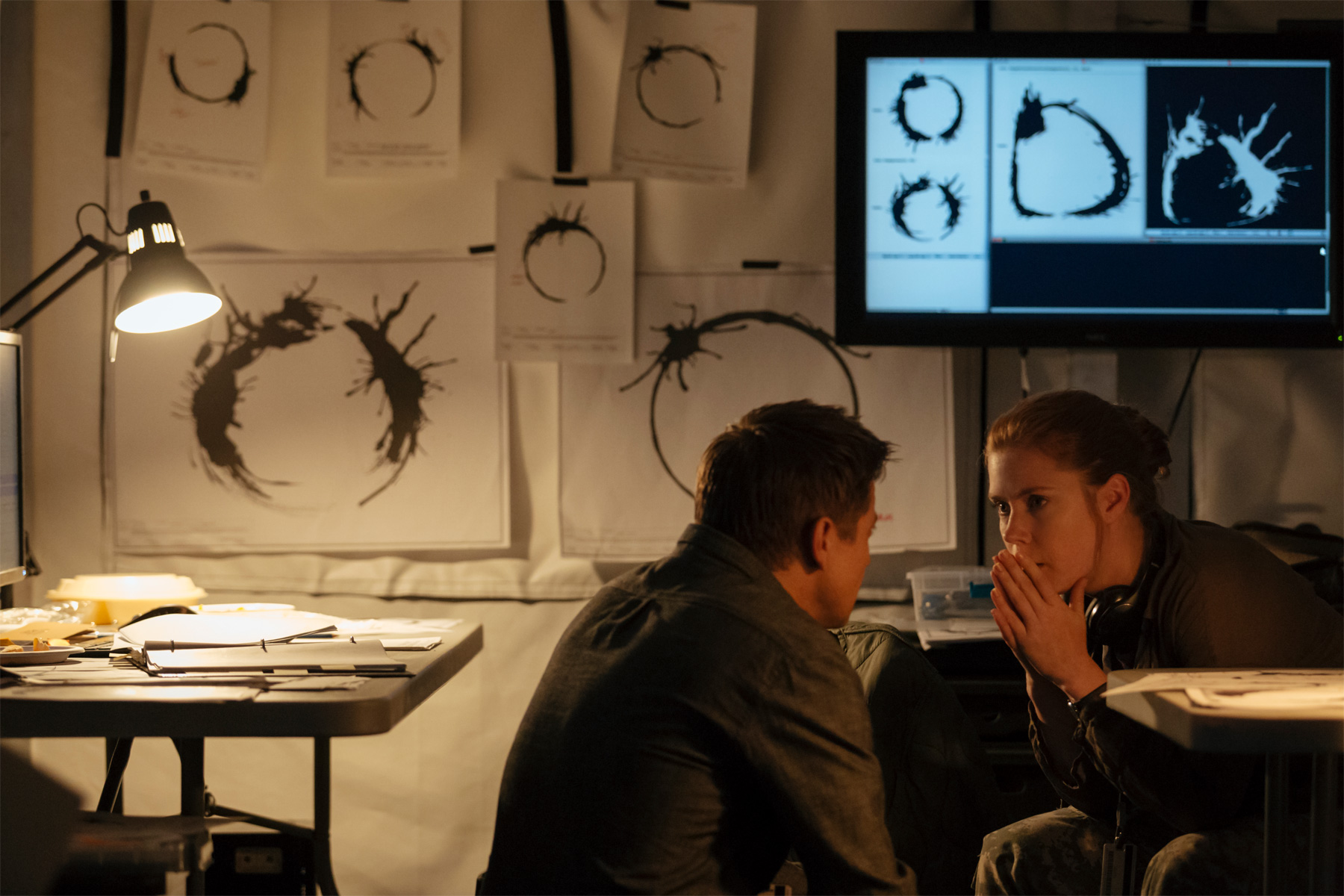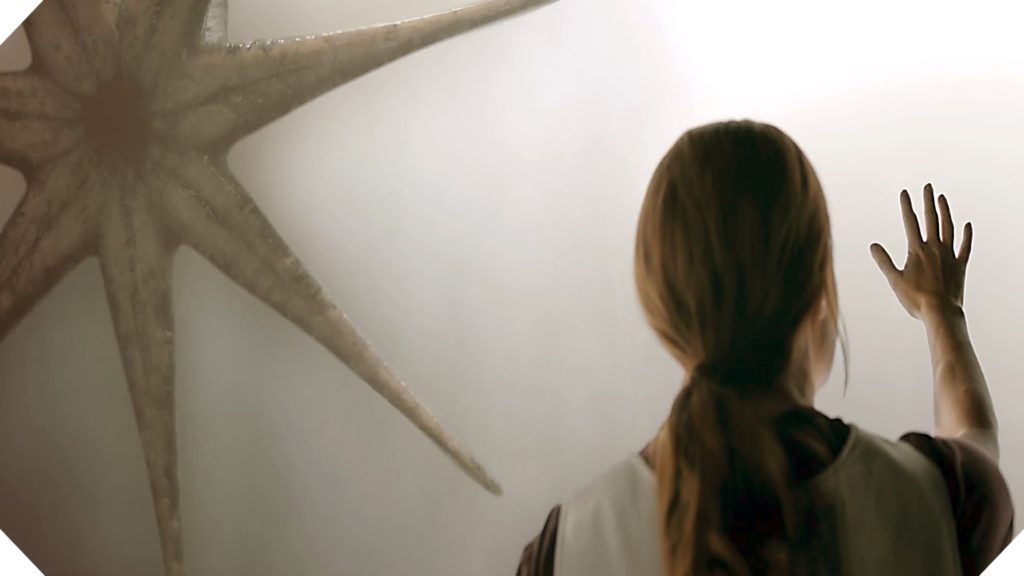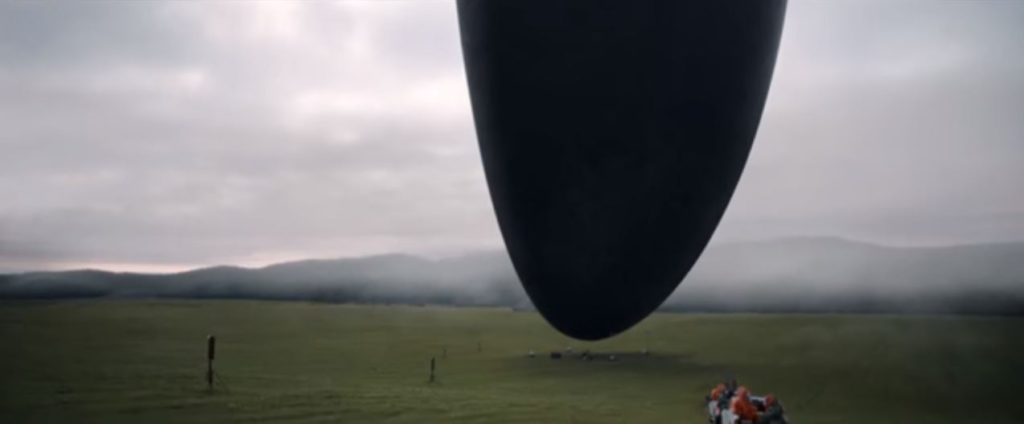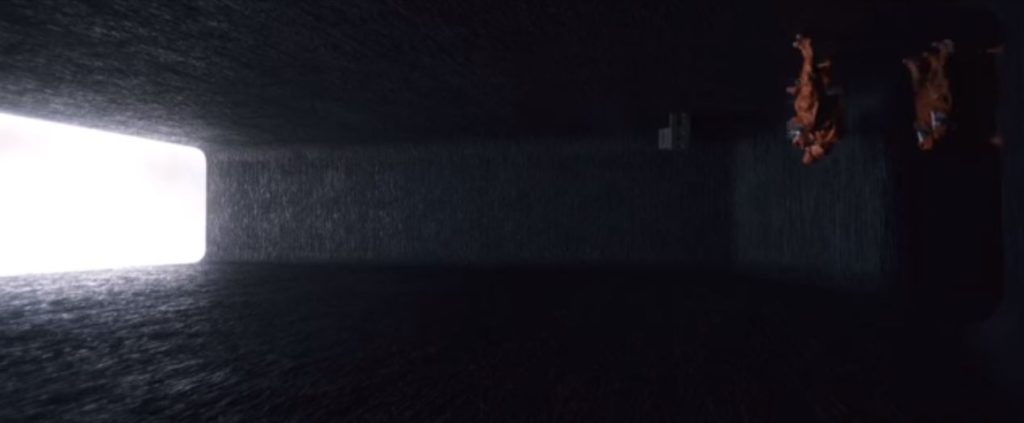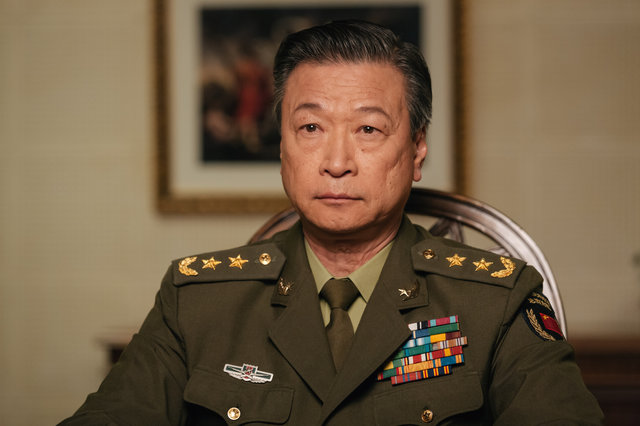Movie Arrival Explained and interview with Eric Heisserer. Obviously everyone loves the movie Arrival – and if you haven’t seen it until just now… WELCOME TO THE CLUB. It’s such a great movie. So great, in fact, that I have covered it on my new podcast – Film Exploder, which is available at all the places.
And it’s that last bit that brings me to the movie today – because I want to walk you through the movie from beginning to end. This movie walk through of the movie Arrival is mainly for those of you who walked out of the theater still scratching your head. It is for those of you who stopped… and said, “Waaaaait, what? How did that work again? There was LSD involved, right?” So, all that to say, this walk through is for those of you who have already seen this movie. Needless to say, spoilers abound.
Arrival Movie Prime Mover
In order to really understand the ins and outs of this movie, we need to understand the bare bones of how the movie works. The who’s, and the what’s, which will then allow us to move on to the why’s.
We begin with Louise Banks, the vaunted protagonist, and thoughtfully brilliant linguist. Quickly, we are presented with a number of “flashbacks” right out of the gate. These visions, of some other time, show Louise with her daughter being born, growing up, and then getting sick. And sadly enough, these visions ultimately end in her daughter’s death. It is this loss, this death, that carries the gravitas, and the emotional heft of the entire movie. It carries with it the prime mover for all the decisions that Louise makes and the influences that drive the rest of this movie. It defines her actions. Her responses. And really is the motivator for everything we see throughout the rest of the movie.
Keep this in mind, because it is this “foundation” that confuses everyone the most when the final shoe falls.
Arrival Movie Narrative
As the actual movie narrative starts, we see everything kick off with Louise’s failed attempt to teach her class at the university. But, we know, it doesn’t happen because of a small alien invasion. Twelve alien pods have been sent by some unknown life form. And with this arrival, all sense of normalcy in the world ends. But we don’t know what the aliens want, why they are here…anything. The world knows nothing.
Soon, Louise is pitched by the military to come in and help them learn the alien language. And the next thing Louise knows she’s standing in a clean room, getting into a bunny suit in order to go and meet the aliens. Can you imagine? Just amazing, this particular turn of events for Louise. And Louise’s counterpart is Ian…a mathematical genius, chosen to support her knowledge of language with his knowledge universal truths founded in algorithms and formulas. And over the next several months they begin to make progress in learning and decoding the language of these new arrivals to earth.
Arrival Movie – Global Conflict
Simultaneously, we begin hearing about the other eleven sites, and the various troubles they are having. Troubles communicating, troubles understanding. And more importantly, troubles in their attempt to trade and receive weapons and various support from the aliens. And while the various countries are still fairly non-conversant, the misunderstandings being piling up. And it is these misunderstandings that lead to the various sites going off-line and the cooperation among countries to end. And the black out only increases the questions, the concerns and the fear around the world.
Arrival Movie – The Visions Continue
Now, while the world is devolving into a state of fear and chaos, Louise is continuing to learn the language of the aliens. And the more she learns, the more she begins to see visions of her daughter, and her daughter’s death. It’s as if the two are somehow intertwined. It could be that Louise is just overworked, and under slept. It could be that the stress of this chaotic and important role she is playing is just starting to take a toll. Or, not.
As the narration acceleration begins to ramp up, and the near collisions continue to increase, we start to see that this could really end up badly for the entire planet. Which is when, during one unfortunate conversation between Abbott and Costello, that a planted bomb goes off. The aliens protect Louise and Ian, but Abbott is killed in the process. And taking a defensive posture, all twelve pods float higher in the sky, and all communications with the aliens end. And, as the various militaries of the world begin planning for war, a shuttle is sent down for Louise.
Which brings us to one of the most important conversations in the entire movie. Costello tells Louise that Abbott is in the process of dying as a result of the bomb blast. We also learn that we are at the pinnacle of something terrible happening. Most importantly? This is where Louise realizes that her visions that she has been seeing, are actually visions into the future, not into the past. And so Louise asks, “Who is this girl?” she asks, of the daughter she’s been envisioning the entire movie long. And right there in your theater you heard the entire audience release a collective, “WAIT WHAT?”
Simultaneously the world’s military begins evacuating from all the sites as attack plans on the pods begin to proceed. It is then, mid-evacuation, while Ian and Louise are standing in line to leave and evacuate, that Louise begins having more visions of a foreseen future. Not a past vision as we previously assumed, but rather a future vision of what might happen. General Shang, the head of the military in China, appears to Louise to tell her thank you for helping to save the day. And Shang? He was so so glad that Louise called his private number to talk to him and to convince him to not attack, and to stand down.
BUT LOUISE HAD NO IDEA WHAT HE WAS TALKING ABOUT.
Until General Shang turned his phone towards him and says, ‘so glad you called this number.’ And blam, she’s back to the line waiting to be evacuated in the past. So Louise hurries to go and find a sat phone to make a call to General Shang. Flash forward – “And that message you gave to me, that message really moved me.” WHAT MESSAGE?!? Flash back, men with guns are chasing after Louise and now Ian is physically standing in front of Louise, allowing her the few precious seconds to communicate with Shang. But what is she supposed to say?!? Flash forward again to Shang – you told me the last thing my dying wife said to me… And then Shang whispers into Louise’s ear. And immediately Louise starts telling Shang in the past what he told her to say in the future.
And with that message from Louise to Shang, Shang stands down. The other nations see that China and America have stood down. And the rest of them stand down as well. And in the aftermath of the chaos, Ian and Louise realize that the aliens had given them the entirety of their language. And it was through this gift of their language, that they would be able to see into the future. As a result of this gift, they would be able to avoid chaotic confrontations like this in the future.
Arrival Story of Your Life Short Story
If you were unaware, Arrival was based on an amazing short story entitled The Story of Your Life, by Ted Chiang. I highly recommend you read it. It will spell out to you very clearly how hard this movie’s script was to write. Eric Heisserer is a genius. I am certain of this. I believe this so much so, that after hearing that the Arrival movie was happening, I had to look this Eric dude up. He and I even connected via numerous DMs on Twitter discussing the intense complications involved with making this movie. And when I asked him, “How in heaven’s name does one make a movie script out of Chiang’s original story?” His answer? He just pointed me to his original screenplay to read for myself. The reason it was so complicated to make was because of the non-linear timeline of the movie. It flows equally forward and backwards simultaneously.
But Chiang’s original story had a different goal – a different ending. As the short story winds down towards its conclusion the Aliens are being pumped for weapons by the humans across the world. And the Aliens acquiesce eventually, and ship plans for some sort of military jump drive or something. And the plans went sliced to all 12 countries. But it was only later that they realized that the plans were for a technical solution that someone had already recently invented elsewhere in the world. So, wow, what?!? WHY?
So, in effect, the aliens had given the world nothing. They gave us something that we had already invented. And then? They vanished. Completely disappeared.
The point of the short story by Chiang, was that the aliens wanted to learn from us a simple but complicated lesson. They wanted to learn how to choose a future other than any they had already foreseen. And humans only run with futures they had never seen before. So this was nothing but a training ground for them. They foresaw an end to their civilization and they wanted to know how to avert that disaster that was staring them in the face. That was the general idea of the point of the book.
Arrival and Eric Heisserer’s Script
As soon as Eric pointed me to his script I read it immediately, and I literally read it with an open mouth. To take a 50-page story and to build it out to a full 100-minute script. Especially a non-linear, all over the map, inside out script like Eric’s. And it is so good, that I will go out on a limb and say that not only will the screenplay for Arrival be nominated for an Oscar but I will also predict that it will win. It just will. (Update: It did not win. And I was agog when Moonlight won. Moonlight was great. I adored it. But this was such a difficult feat.)
But the script is significantly different from Chiang’s original short story, and even different from the final movie get the privilege of seeing. The 12 nations involved with interacting with the aliens almost become secondary to the crowds and the mob inciting riots around the borders of the compounds. We also have Ian, at the beginning of the script, but not identified. We also see the heptopods giving plans (1/12 of them to each nation) for an international spaceship that will give humans the ability to change their future.
Which brings me to the most significant change from the short story, through to Eric Heisserer’s script, over to the final movie. As I mentioned before in the short story Chiang made the gift from the aliens a pointless gift…something that the humans already had. In Heisserer’s script he changed it to an interstellar spacecraft, capable of star travel. Each country was given one twelfth of the plans which then forced the nations to work together. But in the final movie version, those two different options are dropped for a more enigmatic solution…the Aliens give the human race their language. Um, what?
The Arrival’s Gift of Language
Eric and I had exchanged a couple of tweets the week or two before the premiere. But at the premiere, I was pretty beside myself when I finally got my chance in the spotlight to ask the one question I had been dying to ask about the script and the movie. I asked:
“In terms of the transition from the original story, to the script, and then to the movie, it kept the feeling very well from the original book. And you just referred to a lot of the changes that you made, but one of the things that I did not completely understand was the decision to remove the alien’s gift of the ship to the humans. Well, from the version of the script that I had access to anyway…there was going to be an Interstellar-esque, time traveling type ship gifted from the aliens…no? Why did you choose to drop that from the movie?”
Which, as far as questions go – was possibly the best question ever. Or not, because I was so hopelessly enamored with Eric and the work that he had done, and the fact that I was talking to a future Oscar winner had me all a twist and akimbo. Veritable cornucopias of frogs were in my throat. I sounded like I was going to die. I know, because I’ve listened to the recording of the conversation and this particular question over and over again! hahah. Anyway, here was Eric’s more than gracious response:
“You sort of answered your own question. When Interstellar came out I said, ‘We are in trouble.’ Because originally the gift that the heptopods had given us was a ship like theirs so that we could start colonizing. And we were pretty far down that road until Interstellar came out and we knew we had to change that. So when Interstellar came out we had a pretty panicked meeting to discuss what else it could possibly be. And at that point the designs of the logograms were pretty far along and we began to thing that maybe it could just be that the language was possibly the gift itself. And ultimately we decided that was just what we do.”
Let Me Explain the Timelessness of the Arrival
One of the questions that I am certain will come up more often than others is, “What is the deal with the visions that Louise is having. I thought I understood but now? Nope.” Which is fair.
The first thing you have to realize about Arrival is that it is specifically not linear story. It’s a decidedly non-linear story actually. As the movie opens we actually kick it all off with visions of Louise’s daughter. Her birth. Her growth. And eventually her sickness and her death.
You remember these flashbacks right? These were not flashbacks. Well, they were flashbacks, but from the future. But the clever trick that sold these visions as flashbacks was how morose Louise was at the beginning of the movie. Her mother was worried about her. “Yes, mom, I’m fine already… yes.” And she walks through the campus in a daze for some reason. This is the clever con job of the movie. But we actually have absolutely no idea why she is sad. We assume it is because of the death of her child. And we also assume it is because she is obviously divorced. But all of that is false. There is no reason that we know of for Louise to be upset, or down. (Narratively speaking anyway. Obviously it is perfectly fine for people to just be depressed. And I am not trying to comment on the frailty of women… for the love of all that is good and holy. I’m just saying she isn’t upset because of her daughter or her husband BECAUSE SHE HAS NEVER HAD A DAUGHTER OR A HUSBAND. OK?!? Great, thanks.)
But notice the cycle of the visions. We get a pile of visions at the beginning of the movie. But otherwise, we don’t have any again until Louise begins to translate. And we get plenty more the further she immerses herself into the language. Ever wonder why Ian isn’t seeing the visions as well? He’s working with the aliens, right? But he isn’t learning the language. He isn’t immersing himself in the way that the heptopods think. Right? There is no beginning and no end in their language. And Louise is subjecting herself to this anti-transiential mindset, but Ian is not. Make sense?
So these pictures of a daughter, are completely bizarre to Louise. We assumed that she was reflecting back on her time with her daughter and pining for this time again. But instead, every single time she has a vision she is actually thinking…what the hell? Who is that? Which we see most poignantly play out with the conversation between General Shang and herself from the past to the future and then back again. This is only possible because of Louise’s abilities in the heptopod’s language.
Detailed Explanation of the Ending of the Arrival
The movie has been out exactly one weekend, and already people are emailing me and commenting that the ending is a bit vague and it could use some clarity. I personally am very glad that plays out exactly the way it does. But I totally understand the confusion. So let’s just see if we can talk through exactly what happens at the end of the Arrival.
When the bomb goes off inside the ship the aliens do a massive dump of their language in a spray of knowledge. This is the gift from the aliens. This is the key. But from then on all 12 nations are on the verge of attacking the aliens. They had all stopped communicating with one another. And their misunderstanding of the aliens was causing them fear of the aliens. Right? And, as the humans were beginning to retreat from the sites in advance of an attack, Louise sees in her future a conversation with the aliens and so she heads out and sees a pod coming her way. And up she goes…and then she learns that Abbott is dying. But that she is able to see the future – “Who is this girl?” – and she learns that this Hannah, is potentially her daughter……….. IN THE FUTURE. Right? But at this point Louise is only semi-capable with the language, and only seeing a very myopic view of the future. But if she were to immerse herself in all of the heptopod’s logograms she would be able to see much much further and a much wider view of the future.
No? So this gift of all of their vocabulary isn’t just a way to communicate with these aliens more fully… or even at all. The gift of their language is an ability to see the future. As a result of some of these questions I was getting, I hopped on to Twitter and asked Eric, the screenplay writer, a few of the more important ones. But to understand my question you have to know that in Chaing’s book the aliens were a deterministic, non-freewill based species. And their reason for coming to earth was to avert disaster that they were locked into. (I have tried to translate the twitter weirdness to normal language, but otherwise have left everything else the same.)
Taylor – “Hey there Eric, quick question for you. If the language is the gift (not a ship), doesn’t that lock humans on same path as aliens and an eventual demise?”
Eric – “Those who can immerse themselves in the language will experience nonlinear time & help guide humanity to eventually save them. Hence the 3000 years line from Costello.”
Taylor – “True Eric, but the language locks the one understanding the language into a timeline, no? Didn’t aliens originally want to learn flexibility from humans? Seemed like a bit part of Chiang’s original story idea.”
Eric – “I deviate from the story in that aspect — rather than locking into determinism, choice is still on the table. Which, in my humble opinion, makes it more profound that Louise could have chosen NOT to have Hannah with Ian.”
Eric – “(Also, the logograms pulse and shift slightly on close inspection, hinting at slight mutability of choice.)”
Taylor – “Now that, good sir, is a definitive answer. And I particularly dig your Hannah example as well. Thanks sir! And then I closed out with a reference to his winning an Oscar for his screenplay – “and remember, to shout “@tayoflore” from the stage when you win!”
But hopefully that will make sense, if you came here a bit confused as to how the movie ended. If not – just ask the questions that you have in the comments and we can hash them out there.
What was the Mystery Line In Arrival?
But one of the biggest questions of the movie is a super super important one. What does General Shang say to Louise in the future that his wife said to him on his deathbed?!? Well, glad that you asked. When I was at the launch showing on Thursday last week with Eric Heisserer one of the better questions asked of Eric was exactly this. What did she say? And Eric’s response was that she said,
“In war there are no winners, only widows.”
But it was his story about this interaction with Denis was the most interesting bit about this quote. He had written this landmine into his script with something like, “And General Shang whispers in Louise’s ear.” but Denis had Amy with a Chinese linguist learning the Chinese right there, right then ready to go. He could just have her say nothing! And wanting to make Denis really happy he worked and worked to come up with the perfect quote…only to find at the premiere, there were no subtitles for the quote and thus it was lost to history! hahaha.
Final Thoughts on the movie Arrival
I’m pretty close to saying that the movie Arrival is my favorite movie of the year so far. (Notice how Rogue One isn’t out yet? hahah… I left myself room to include that film still because I’m not a complete idiot.) It was fantastic in every way. The reveal with Ian having left because he was upset about her deciding to have a daughter anyway, in spite of the knowledge she had had about her eventual demise was extraordinarily compelling, and required work on the audiences part. The sound design was beyond amazing. The cinematography was crazy! The logograms were fantastic. And all of it hinged on this really clever non-linear premise that just kept the surprises coming throughout the film. It just decimated the gender bias conversations that have been killing other films the past year or two. (Can I just say that Mad Max, Star Wars Episode 7 and this movie have probably done more for gender equality than a million other movies before them? So kudos!) But over all, the movie was just fantastic in every way. I definitely can’t recommend it enough. There were a bunch more questions from the night that I will eventually transcribe and fill in. But for now I think we’ll leave it at an almost 3,000 word blog post instead of 5,000! hahaha. Love to hear your thoughts and ideas about this amazing film.
Edited by: CY

